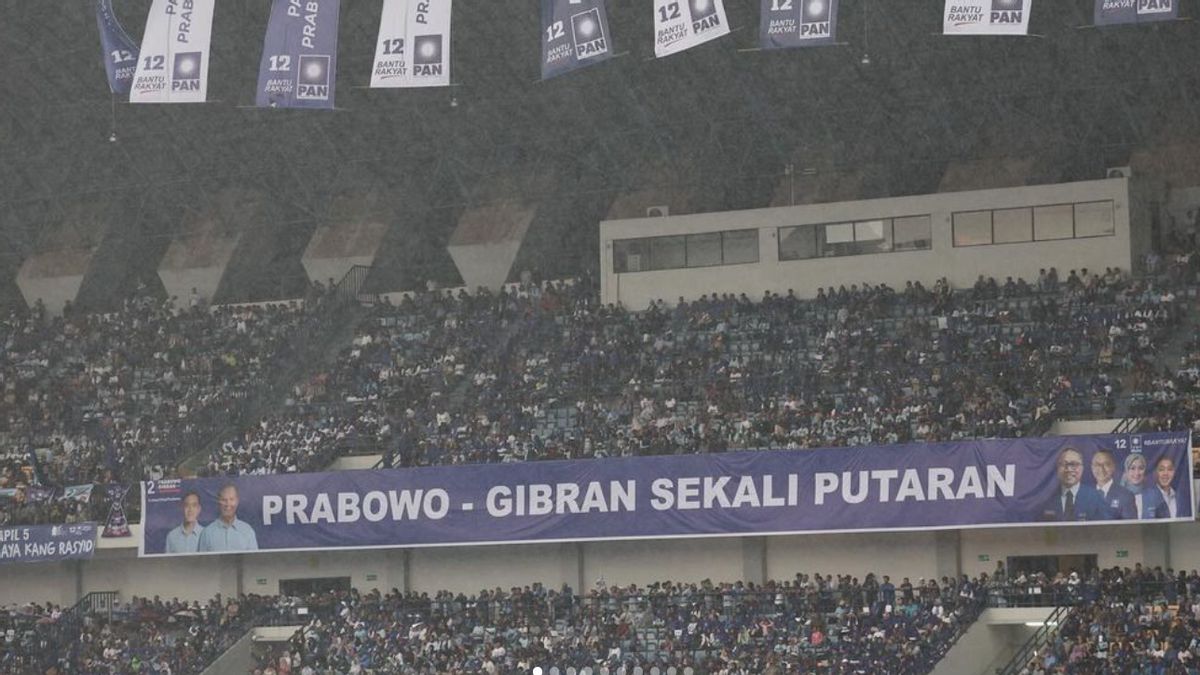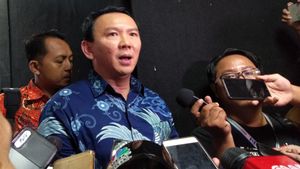JAKARTA - The Indonesian Political Indicators survey institute released a national face-to-face survey with the results of the presidential and vice presidential candidate pair number 2 Prabowo Subianto-Gibran Rakabuming Raka potentially winning one round in the 2024 presidential election (Pilpres).
If the presidential election is held during the survey, the survey results show that the Prabowo-Gibran pair has crossed the one-round presidential election limit, with an electability of 51.8 percent.
"But the current vote is still in the survey error range of less than 2.9 percent, so there is still potential for presidential elections to take place in two rounds," said Founder and Main Researcher of Indonesian Political Indicators Burhanuddin Muhtadi at the Release of National Survey Findings reported by ANTARA, Friday, February 9.
Burhanuddin revealed that about 80 percent of the reasons why residents in the survey chose the president were spread in many aspects, namely from a firm image to reasons for party support. Prabowo-Gibran and Ganjar-Mahfud are respectively more prominent in their firm reasons and attention to the people.
Meanwhile, Anies-Muhaimin is more spread to a number of aspects that are relatively equitable, namely especially because they are smart or broad-minded, religious or religious, pay attention to the people, and want change.
The survey showed that Anies-Muhaimin's electability was in second place with around 24.1 percent support, Ganjar-Mahfud in third place with around 19.6 percent support, and the group that had not shown its choice had almost run out, which was only about 4.5 percent.
If the group that is still hesitant (undecided) is predicted to use a statistical model, he said that the distribution of each candidate pair, namely Prabowo-Gibran 54 percent, Anies-Muhaimin 24.9 percent, and Ganjar-Mahfud 21.1 percent.
Based on the prediction model at 95 percent, the percentage of the electability of the Anies-Muhaimin pair is predicted to be in the range of 22.8 percent to 27 percent, Prabowo-Gibran at 51.6 percent to 56.4 percent, and Ganjar-Mahfud in the range of 19.2 percent to 23.1 percent.
However, said Burhanuddin, there are still around 10.5 percent of supporting bases that tend to change their choices.
SEE ALSO:
If it is assumed that the group is closer to a group that is still doubtful, then the distribution of the strong bases of each candidate pair, namely Prabowo-Gibran around 45.2 percent, Anies-Muhaimin around 21.2 percent, Ganjar-Mahfud around 17.1 percent, and groups who still doubt about 16.4 percent.
"That way the presidential election is still open for two rounds, although the greater chance is one round," he said.
In the National Face-to-face Survey, the survey population consists of all Indonesian citizens who have the right to vote in the election, namely those who are 17 years old or older or are already married when the survey is conducted.
Sampel withdrawals use a multistage random sampling method. Assuming a simple random sampling method (simple random sampling), the base sample size of 1,200 respondents had an error tolerance of around 2.9 percent at a 95 percent confidence level.
The English, Chinese, Japanese, Arabic, and French versions are automatically generated by the AI. So there may still be inaccuracies in translating, please always see Indonesian as our main language. (system supported by DigitalSiber.id)


















